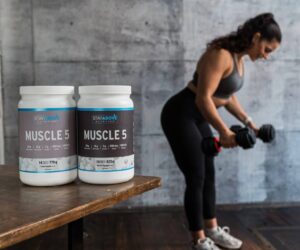

Is there any truth to the eight hours of sleep per night rule?
Beware, workaholics and hibernators! According to science, both shorter AND longer sleep durations are associated with greater health risks vs. the eight hours of sleep per night rule. So, it is true, the evidence suggests that you should aim for seven to eight hours of sleep per night to optimize your health.
Is four to six hours of high-quality sleep enough?
Quality of sleep may be defined by amount of slow wave sleep and rapid eye movement one gets per night, which are associated with restorative function and memory consolidation. Sleep quality may also be defined by sleep efficiency (amount of time in bed asleep) and sleep onset latency (time it takes to fall asleep).
Studies have shown that approximately 30% of individuals report problems with initiating or maintaining sleep. Sleep quality is a significant predictor of health and mortality, and poor sleep is associated with impaired physical functioning, depression, cardiopulmonary disease, and musculoskeletal conditions. Granted that you may feel that six hours of high-quality sleep per night is sufficient for you, research still suggests that seven to eight hours per night is most beneficial.
All carbohydrates are bad for your health and sleep quality – true or false?
Although carbohydrate intake may make you sleepy, it is important to consider the type of carbs for overall health and sleep quality. In general, it is true that research indicates that carbohydrate and fat intake is inversely correlated to sleep quality. Specifically, consuming a high-calorie diet rich in simple sugars and saturated fats, especially in the evening or at night, will likely negatively affect your sleep quality. Conversely, the nutritional recommendations for improved sleep are very similar to those for good health, with an increased intake of fruits, vegetables, whole grains (higher in fiber), and oils that are low in saturated fats.
Both acute and chronic exercise improves quality of sleep. Regardless of mode and intensity of exercise, it enhances sleep efficiency and duration, especially in middle-aged, elderly, and in populations suffering from disease. Sleep quality may also be improved in younger populations by moderate and high-intensity exercise, while the former appears most effective for a good night’s sleep.
Alcohol improves your sleep – true or false?
Sleep remedies must be weighed according to benefit-to-risk ratios, with non-pharmacologic approaches being preferable over traditional sleep medications for improving sleep quality. The long-term, clinical benefits of using pharmacological treatments are indeed limited and alternative approaches may be cheaper and more sustainable in the long run.
Certain plant-based supplements may have less ‘hangover’ effects and be safer vs. traditional sleep medications, although more research is needed in this field. You may feel that alcohol helps you to relax, but it can hinder your ability to reach deeper stages of sleep and thereby reduce sleep quality (e.g. restoration and memory consolidation).
Thus, cognitive-behavioral approaches, such as stimulus control therapies, relaxation therapies, and sleep hygiene education, are preferred and recommended modes of treatment for poor sleep.
Here are ten science-based, natural ways to promote good sleep:
If you are not satisfied with your purchase, please contact us at info@stayabovenutrition.ca. We will endeavour to improve your experience with our products.
Check out our FAQ for more information.
We currently ship our products anywhere within Canada. Purchases are typically processed and shipped within 48 hours. Depending on your location, items will arrive within 2-5 business days.
Check out our FAQ for more information.